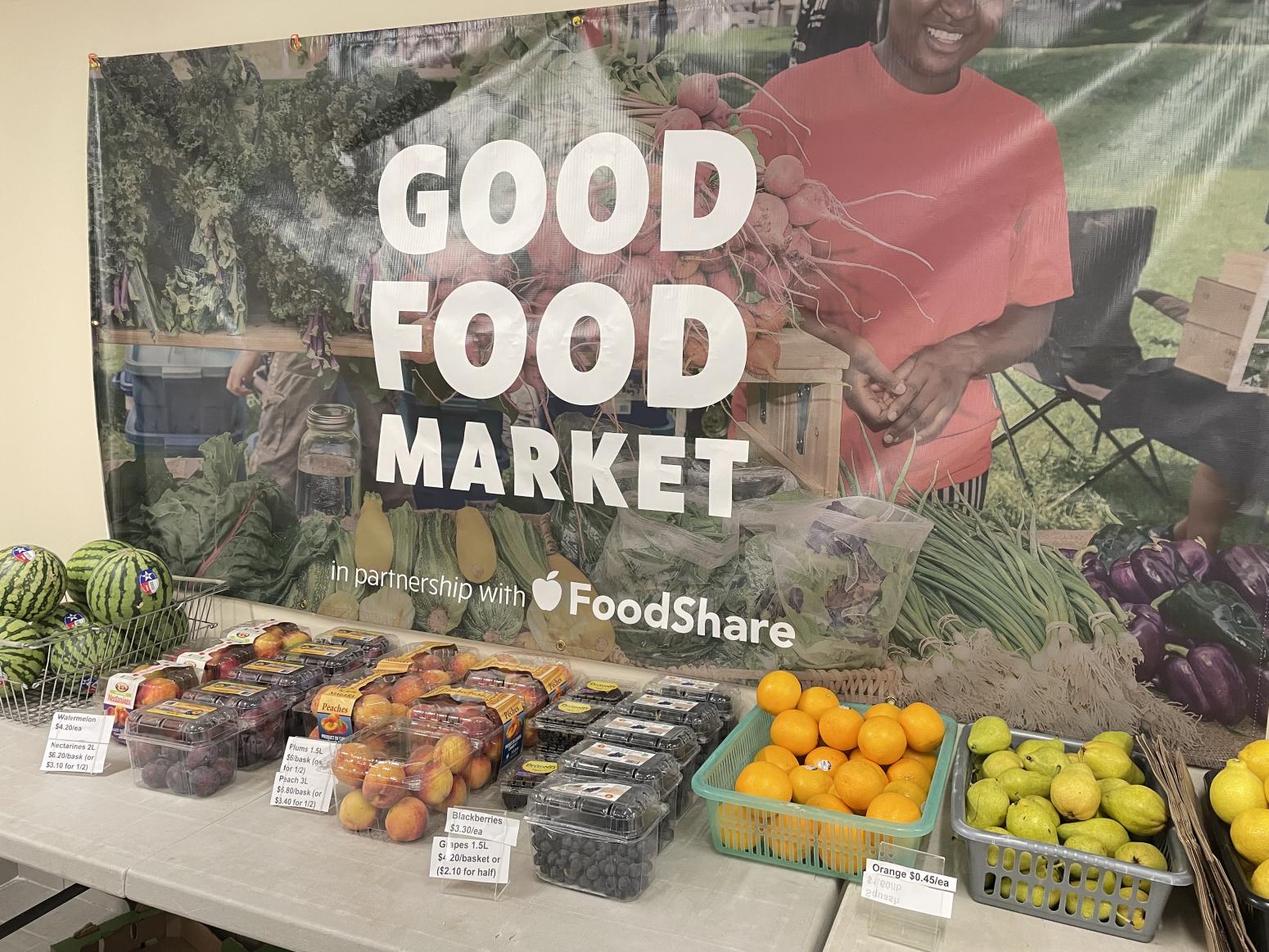How food helps create employment
Food has always been a way to bring people together, and our relationship with food can impact the growth of the community. One area where this impact is felt very strongly is economic development.
This article is part of a series that highlights the importance of food security partners, programs and initiatives in contributing to the overall health and wellbeing of TCHC communities. Read and view other articles and videos in this series.
We met Tara Ramkhelawan at the Waterfront Good Food Market just as they were preparing to open the market for the day. Located at 25 Bishop Tutu Boulevard, close to Billy Bishop Airport, the community-run market gets very busy, with lineups sometimes out the door. Boxes of fruit and vegetables were stacked along one side of the wall. “When I started coordinating the Waterfront Good Food Market here in 2008, I was a mother of three young children,” said Tara. “Having a family really brought home to me the importance of things, and that we’re not eating in ways that sustain our children well.”
Food has always been a way to bring people together, and our relationship with food can impact the growth of the community. One area where this impact is felt very strongly is economic development and more specifically, job opportunities. Community members who get involved with the production and distribution of food in their neighbourhoods, often by simply volunteering, can not only help grow the economy of their community but can boost job creation for themselves and for others.
As the Waterfront Good Food Market Coordinator, Tara recalls a community vendor that went on to achieve great success. “They tried making different things and then one year settled on healthy popsicles,” she said. The chocolate avocado treat was such a hit that the vendor went on to start their own business and has now gone on to sell at various markets in the city. Tara couldn’t be more pleased, “It’s great to see that the market has been a launching pad for some of our neighbours.”
According to Laura Hammond of the Birchmount Community Action Council, food and economic growth go hand-in-hand. “It’s not just about the food,” she said. “You peel back the layer of what food security is and you see a need for economic development and mental wellbeing.” Laura firmly believes that an understanding of our food and where it comes from helps us to actively improve the system, which will also have the added benefit of creating more employment opportunities for community members. Her council has a summer jobs partnership with Foodshare, which actively hires youth for placements from the communities they serve. “It’s really great for them to be able to take on leadership roles and just hearing things from them with fresh eyes,” she said. “It gives us a really rich perspective on how we can approach things in terms of outreach and get ideas on how we can facilitate programming.”
Arsema Berhane, TCHC Acting Director of Programs and Partnerships, sees food-related job growth happening across our communities, from beekeeping and honey making operations in Gordonridge and Cooper Mills to various catering businesses that have formed from various conversations and exchanges around food, something that TCHC highly encourages. “As an organization, we've really started to invest in supporting tenant-led businesses. Food is one of those areas where we've been able to procure the work of our tenants in catering businesses or to provide catering for many of our events,” she said. According to Arsema, one benefit from so many community members being involved is the fusion of various cultures into certain dishes, which is a great reflection of the dynamic food culture in Toronto.
With the ever-present (and growing) problems of a changing climate and high food prices, jobs related to food and how we feed ourselves will become even more important. Zakiya Tafari, Executive Director of Afri-Can FoodBasket, works to improve public health through food literacy and reducing hunger. He believes that such jobs in the food sector will be critical to our survival and is actively working to educate our youth about them. “If I can help encourage some young people to be able to look for careers in food science and urban agriculture, I want to do that as much as possible,” he said. “It’s definitely going to be in demand and it’s something that our world is going to need.”
We can already see the positive results community involvement can bring. Since 2008, organizations like the Waterfront Good Food Market have been working hard to eliminate “food deserts” (communities where there is a lack of affordable groceries), converting them into something more sustainable and growing them for the future. “A number of our volunteers that are here at the market also become volunteers that collaborate on other things”, said Tara. “It sets up a space and a groundwork for people to build on.”
Watch an interview with Tara Ramkhelawan, Coordinator of the Waterfront Good Food Market.

